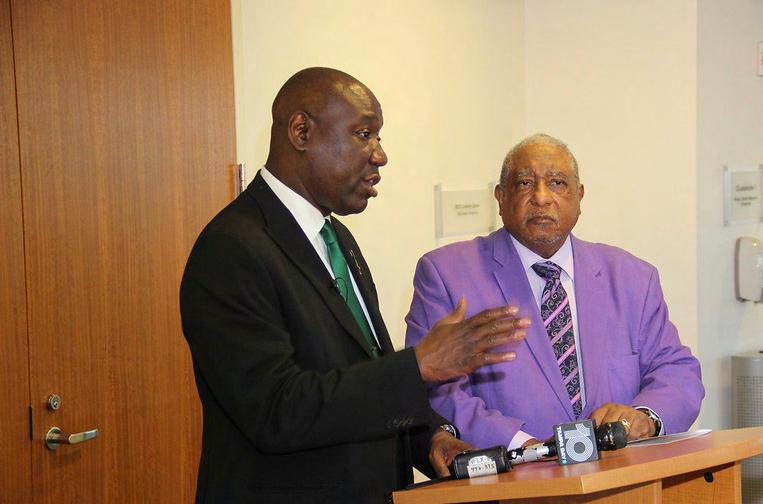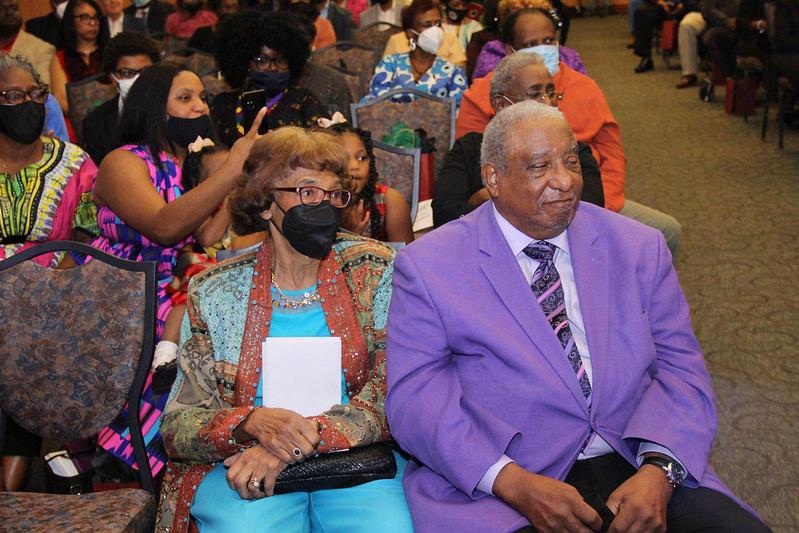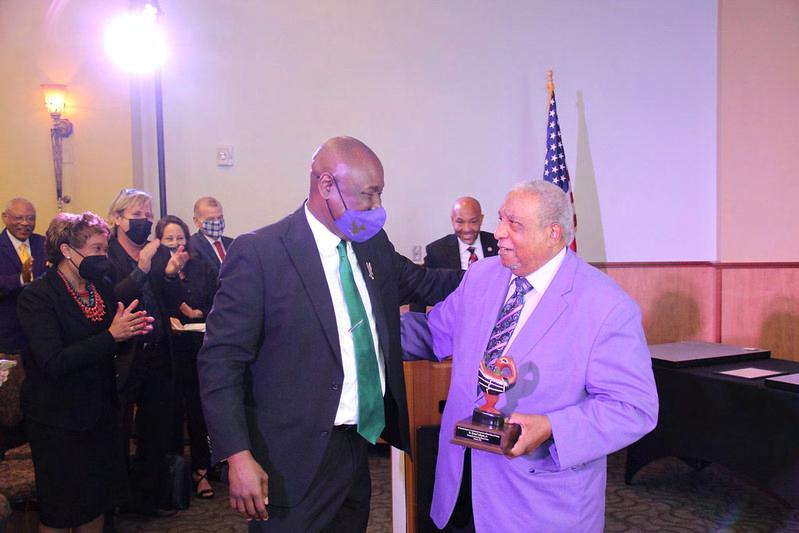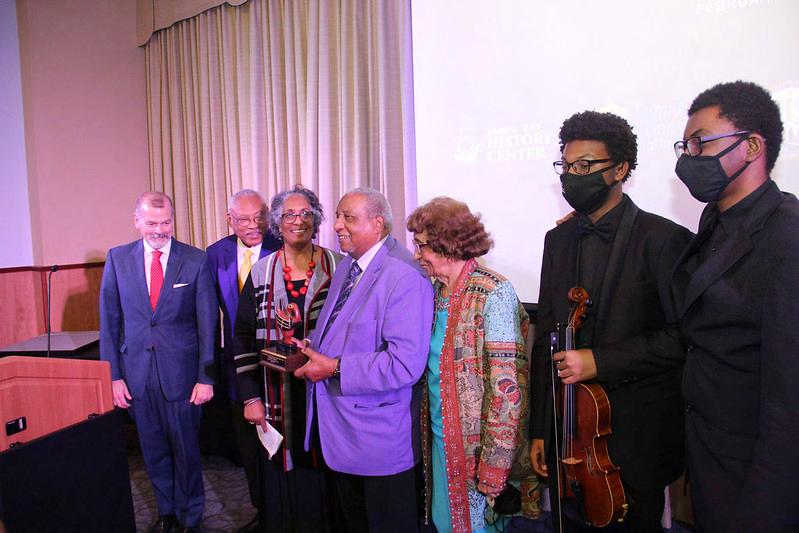
4 minute read
Dr. Bernard Lafayette
FROM THE CHAIRMAN
Chairman’s Corner
Sclc Chairman Dr. Bernard Lafayette: The Interview Part One
Written by: Maynard Eaton Managing Editor
Dr. Bernard LaFayette is a bona fide Civil Rights Movement legend. He is one the few living comrades of Dr. Martin Luther King Jr., Congressman John Lewis, and Julian Bond. Now overdue praise, tributes, honors, and awards are pouring in for the 81-year-old Chairman of SCLC. During Black History Month, the Tampa Bay History Center gave their native son a singularly significant salute with the first annual presentation of the Dr. Bernard LaFayette, Jr. Award for the Preservation of Black History and Heritage. This annual award recognizes an individual or group whose work and contributions have significantly enhanced the understanding and awareness of the Tampa Bay area’s rich Black history. Dr. LaFayette, who was born in Tampa, Fla., co-founded the Student Nonviolent Coordinating Committee in 1960 and has spent the decades since as a Civil Rights Movement activist, minister, educator and lecturer on strategy and nonviolent social change. And, there are more accolades. Dr. LaFayette also had a street named for him in Selma this year during the commemoration of the Selma to Montgomery March and he also was interviewed for a television series on his reflections of the President and Michelle Obama portraits travelling exhibits.
Throughout most of his stellar career, Dr. LaFayette has shunned the spotlight, preferring instead to teach and train the tactics and philosophies of Nonviolence. That is changing somewhat now as he’s being showered with accolades and applause. During a wide-ranging hour long interview, I asked him about that and his iconic career.

Here is Part One of our conversation.
Maynard Eaton: You have been celebrated recently by friends and colleagues for your stellar career. Do you think that, at last, you are getting your just due as a Civil Rights leading activist?
Dr. Bernard LaFayette: “Actually, I devoted my life to developing leaders so we can continue to have good leadership, social change and continue to institutionalize nonviolence. So, you need to have good institutions that would serve that purpose. And the way you can have good institutions is you’ve got to have good leadership and people who know how to not only make things change on the outside and in the community and globally, but you have to be able to maintain your institutions and you can’t do that without good leadership. So, in addition to training people, the strategies and the philosophy, I devoted my time to helping the trained leadership. So I cannot particularly promote myself as a leader, but as I get older, people have come to recognize the work that I’ve been doing a lot of people don’t know about”
ME: You are self-effacing, indeed. I mean you’re not necessarily striving to be viewed as a civil rights star, but as you grow in grace, don’t you want your work recognized and rewarded?
DBL: “If I’ve just really focused on myself, then when I am gone, I have left nothing behind.” ME: Tampa Bay History Center and the first annual Bernard Lafayette award. You’re not going away. Your name’s going to live on, if nothing else, through that award and your accomplishments. What does that mean to you? What is that to you? The first annual Bernard Lafayette award in your name? DBL: “Well, I’m a native of Tampa, Florida, and I have a lot of history there. Even before I got involved in the movement. My experiences in Tampa, Florida, where I was born, those years helped to give me the vision that I needed and also the determination. So I experimented with how you can bring about changes at an early age. So I was convinced that it’s possible to change things. You don’t have to accept things, particularly if those things not for the good of all people.”

ME: Share with us a little bit how you felt getting that award? Being back home and being recognized. You and famed attorney Ben Crump on the same evening. DBL: “Well, there was an irony there when I received that award. It was very special to me and it was already planned and people, my family and close friends, all planned to be there to celebrate. The irony of the thing, it was the same week that we were celebrating the life of my oldest sister. She was not older than I was, but she was my oldest sister and that had some interesting kind of dynamics. Well, people gathered for me, but they also gathered for her. So you gathered for a celebration of life, for both of us.”
In Part 2 of my interview with Dr. LaFayette in our upcoming SCLC 2022 Anniversary magazine edition, we learn more about his fascinating life and his dedication to teachings on Nonviolence as espoused by Dr. Martin Luther King Jr.










